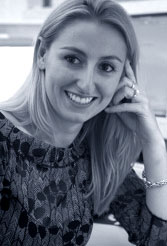

A: I am working on the ATLAS experiment as an experimental particle physicist. I will be monitoring data quality, ensuring that the ATLAS detector records good data for analyses and that it performs as expected. To do this, I will be providing a tool that performs data quality analysis in an automatic way.
A: With the LHC, we will be able to explore the fundamental nature of matter and energy by creating conditions similar to those just after the Big Bang. It is a bit like being on the verge of a new scientific revolution, like during the time of Copernicus or at the beginning of the 20th century.
A: The LHC and detectors such as ATLAS need very sophisticated instruments that typically exceed what is available in industry. This means that we work closely with industry to develop custom-made devices. We also need a lot of computing resources to record, store, process and perform analyses.
A: Fundamentally, understanding the origin of the universe and the Big Bang are just fascinating to me. It is even more exciting now to look for the answers to those questions, since we still have so much to learn and we now have a tool to do it. I feel really privileged to be part of the endeavor.